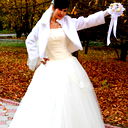Без чтения художественной литературы в оригинале изучение иностранного языка было бы неполным. Красота языка Шекспира, порой непереводимая, хорошо передается художественными средствами. В английском языке они называются Fugures of Speech или Poetic Figures.
Речь пойдёт о самых популярных средствах выразительности в английском языке: эпитетах, сравнениях, метонимии, зевгме, каламбуре, олицетворении, аллюзии и др. Весь языковой материал представлен в табличном виде и рассмотрен на примерах классических произведений английской литературы.
Метонимия (Metonymy) Metonymy – a conceptual projection whereby one experiential domain is partially understood in terms of another experiential domain included in the same common experiential domain. The pen is mightier than the sword. (“Richelieu” by Edward Bulwer-Lytton)
“Friends, Romans, countrymen, lend me your ears.” (“Julies Caesar” by W. Shakespeare)
Зевгма (Zeugma) Zeugma – linguistic construction in which a verb governs two nouns, one of which is literally, and the other metaphorically, related to the verb. I packed my shirt and sadness.
He took his hat and his leave.
“Oh, flowers are as common here, Miss Fairfax, as people are in London.” (“The Importance of being Earnest” by Oscar Wilde)
Каламбур (Pun) Pun – linguistic construction in which one word is used in two syntactic categories. Your children need your presence more than your presents. (by Jesse Jackson)
“The Importance Of Being Earnest” (by Oscar Wilde)
«The truth is rarely pure and never simple. Modern life would be very tedious if it were either, and modern literature a complete impossibility!» (“The Importance of being Earnest” by Oscar Wilde)
Ирония (Irony) Irony – a statement that contradicts the actual attitude of the writer/speaker. It’s a lovely day (when the weather is nasty);
Minitru (the Ministry of Truth dedicates itself to destroying the truth); Miniluv (the Ministry of Love handles torture) – “1984” by George Orwell
Эпитет (Epithet) Epithet – a stylistic device which expressively qualifies a subject by naming its characteristics – reveals a purely individual emotional attitude. lazy road, sweet melodies, tired landscape;
soft repentant moan (“Morning” by W. Blake)
“I retired Into a silent bay, or sportively Glanced sideway” (by W. Wordsworth)
a season of happiness and enjoyment;
“His view is that a sermon nowadays should be a bright, brisk, straight-from-the-shoulder address, never lasting more than ten or twelve minutes.” (“The Inimitable Jeeves” by P.G. Wodehouse)
Сравнение (Comparison / Simile) Simile – a linguistic structure of the form “A is like B. Ordinary comparisons – generally literally true, similes – literally false. Encyclopaedias are like dictionaries. (comparison by A. Ortony)
Encyclopaedias are like gold mines. (simile by A. Ortony)
“Old as a coat on a chair; and his crushed hand as inexpressive as a bird’s face.” (“Beggar” by Terence Tiller)
“Rage is like a volcano” (“Rage” by Jake Atchinson)
Аллюзия (Allusion) Allusion – a stylistic device, a reference to a famous historical or literary figure or event placed in a different context. Plan ahead: it wasn’t raining when Noah built the ark. (by Howard Ruff)
Олицетворение (Personification) Personification – a stylistic device which metaphorically represents an animal or inanimate object as having human attributes. Ideas and abstractions can also be personified. I can’t get the fuel pump back on because this bolt is being uncooperative.
Подробнее читаем здесь: http : / / englishgu . ru / figures-of-speech/
Лингвистика
Какие бывают стилистические средства в английском языке. Помогите срочно
Стилистические средства универсальны. В английском нет специфических средств.
Похожие вопросы
- Английский язык! Помогите! Срочно!
- Помогите перевести на английский язык!! Очень срочно надо!!!
- Немецкий и английский язык. Помогите!
- Те, кто хорошо владеет английским языком, помогите(
- ЛЮДИ ЗНАЮЩИЕ АНГЛИЙСКИЙ ЯЗЫК, ПОМОГИТЕ!!!
- Есть ли у кого-нибудь журналистская заметка на английском языке? Помогите пожалуйста, нужна срочно
- Мне нужны стихи или выражения про цветы или про розу на английском языке...помогите..очень срочно!
- Люди, знающие английский язык! Помогите, пожалуйста, перевести. Нужно срочно. Выручите меня.
- Английский язык! Помогите пожалуйста перевести предложения с русского на английский. Буду благодарна
- Помогите составить предложения с герундий (английский язык)очень срочно на завтра уже(((

